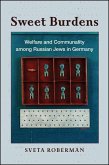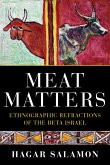Latinos in Israel charts the unexpected ways that non-citizen immigrants become potential citizens. In the late 1980s Latin Americans of Christian background started arriving in Israel as labor migrants. Alejandro Paz examines the ways they perceived themselves and were perceived as potential citizens during an unexpected campaign for citizenship in the mid-2000s. This ethnographic account describes the problem of citizenship as it unfolds through language and language use among these Latinos both at home and in public life, and considers the different ways by which Latinos were recognized as having some of the qualities of citizens. Paz explains how unauthorized labor migrants quickly gained certain limited rights, such as the right to attend public schools or the right to work. Ultimately engaging Israelis across many such contexts, Latinos, especially youth, gained recognition as citizens to Israeli public opinion and governing politics. Paz illustrates how language use and mediatized interaction are under-appreciated aspects of the politics of immigration, citizenship, and national belonging.
Hinweis: Dieser Artikel kann nur an eine deutsche Lieferadresse ausgeliefert werden.
Hinweis: Dieser Artikel kann nur an eine deutsche Lieferadresse ausgeliefert werden.








